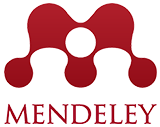Value–Reflective Pedagogy (VRP–3F): A Conceptual Framework for Pancasila-Based Reflective–Value Learning
Abstract
Keywords
Full Text:
PDFReferences
Alfiatin, N., Laksono, M. P., Syarif, M. A. A., & Yun, S. A. (2025). Refleksi pembelajaran dalam Kurikulum Merdeka: Adaptasi dan implementasi untuk penguatan pendidikan. Jurnal IHSAN: Jurnal Pendidikan Islam, 3(2), 24–35. https://doi.org/10.61104/ihsan.v3i2.895
Boud, D., Keogh, R., & Walker, D. (2013). Reflection: Turning experience into learning. Routledge.
Cranton, P. (2016). Understanding and promoting transformative learning (3rd ed.). Stylus Publishing.
Darmawan, A., Yuliani, S., & Hartati, M. (2022). Refleksi guru dalam pembelajaran tematik di sekolah dasar. Jurnal Pendidikan Dasar Nusantara, 8(1), 45–58. http://jurnal.unimus.ac.id/index.php/jpdn/article/view/9456
Dewantara, K. H. (1977). Karya Ki Hadjar Dewantara: Bagian I, Pendidikan. Majelis Luhur Persatuan Taman Siswa.
Dewey, J. (1933). How we think: A restatement of the relation of reflective thinking to the educative process. D. C. Heath.
Fernández González, M., & Akrivou, K. (2024). The reflective self and moral growth: Linking reflection to virtue development. Journal of Moral Education, 53(2), 167–183. https://doi.org/10.1080/03057240.2023.2277913
Gibbs, G. (1988). Learning by doing: A guide to teaching and learning methods. Oxford Polytechnic.
Kemdikbudristek. (2022). Profil Pelajar Pancasila dan panduan Projek Penguatan Profil Pelajar Pancasila (P5). Kementerian Pendidikan, Kebudayaan, Riset, dan Teknologi. https://guru.kemdikbud.go.id/kurikulum/referensi-penerapan/panduan-penguatan-profil-pelajar-pancasila/
Kolajo, T. (2025). The role of reflective engagement in promoting metacognitive and social-emotional competencies. Journal of Educational Psychology Research, 19(3), 210–228. https://doi.org/10.1016/j.jepr.2025.01.008
Kolb, A. Y., & Kolb, D. A. (2017). Experiential learning theory as a guide for experiential educators in higher education. ELTHE: A Journal for Engaged Educators, 1(1), 7–44. https://nsuworks.nova.edu/elthe/vol1/iss1/7
Kolb, D. A. (1984). Experiential learning: Experience as the source of learning and development. Prentice Hall.
Kolb, D. A. (2015). Experiential learning: Experience as the source of learning and development (2nd ed.). Pearson Education.
Lickona, T. (1991). Educating for character: How our schools can teach respect and responsibility. Bantam Books.
Lovat, T., & Toomey, R. (Eds.). (2021). Values education and quality teaching: The double helix effect. Springer.
Mezirow, J. (1991). Transformative dimensions of adult learning. Jossey-Bass.
Murphy, C. T. (2024). Situating reflective practice in experiential learning. Reflective Practice, 25(4), 471–486. https://doi.org/10.1080/14623943.2024.1715770
Narvaez, D., & Lapsley, D. K. (2019). Becoming a moral person: The role of self, emotion, and culture in moral development. Educational Psychologist, 54(3), 165–180. https://doi.org/10.1080/00461520.2019.1623322
Noddings, N. (1984). Caring: A feminine approach to ethics and moral education. University of California Press.
OECD. (2019). OECD Learning Compass 2030: A series of learning frameworks for the future of education. OECD Publishing. https://www.oecd.org/education/2030-project/
Oeschger, T. P., Makar, E., Hymer, B., & Ainsworth, S. (2024). The interplay between core values and teaching practices. European Journal of Psychology of Education. https://doi.org/10.1007/s10212-024-00849-y
Pokhrel, R., Aryal, B., Bexci, M. S., & Sharma, M. K. (2025). Integrating values in pedagogy for holistic learning: Educators’ perspectives and practices in Nepalese schools. Journal of Information Systems Engineering & Management, 10(41s). https://doi.org/10.55267/iadt.07.14409
Rachman, A., Hidayat, R., & Widodo, N. (2024). Implementasi nilai-nilai Profil Pelajar Pancasila dalam pembelajaran tematik di sekolah dasar. Jurnal Pendidikan Karakter, 14(2), 123–137. https://doi.org/10.21831/jpk.v14i2.71215
Reynoldson, M. (2024). Narrative value theory: An educational biography as an iterative theory-of-self. International Journal of Lifelong Education, 44(1), 6–16. https://doi.org/10.1080/02601370.2024.2394543
Rook, L. (2025). Reflective assignments and moral reasoning development in curriculum design. Teaching and Learning Inquiry, 13(1), 87–104. https://doi.org/10.20343/teachlearninqu.13.8
Schön, D. A. (1983). The reflective practitioner: How professionals think in action. Basic Books.
Sherwood, M. (2024). Reflective teaching for ethical reasoning: Evidence from teacher professional learning. Educational Research Review, 42(4), 505–523. https://doi.org/10.1016/j.edurev.2024.100612
Taylor, M., & White, S. (2019). From technique to ethics: Rethinking reflection in education. Reflective Practice, 20(6), 723–738. https://doi.org/10.1080/14623943.2019.1674273
Towaf, S. M. (2016). The national heritage of Ki Hadjar Dewantara in education. Journal of Education and Practice, 7(8), 154–160. https://eric.ed.gov/?id=EJ1092543
UNESCO. (2024). Social and emotional learning: Ethics of care in education. UNESCO Publishing. https://unesdoc.unesco.org/ark:/48223/pf0000388875
Wang, X., Li, H., & Chen, Y. (2024). Cultivating moral action through reflective pedagogy: A case of value-based experiential learning. Asia Pacific Journal of Education, 44(2), 200–219. https://doi.org/10.1080/02188791.2024.2318448
Wuryandani, W. (2022). Implementasi pendidikan karakter pada kurikulum sekolah dasar di Indonesia. Jurnal Pendidikan Karakter, 12(1), 15–28. https://doi.org/10.21831/jpk.v12i1.45910
DOI: https://doi.org/10.21107/widyagogik.v13i3.32288
Refbacks
- There are currently no refbacks.
Copyright (c) 2025 mujtahidin mujtahidin

This work is licensed under a Creative Commons Attribution-ShareAlike 4.0 International License.












